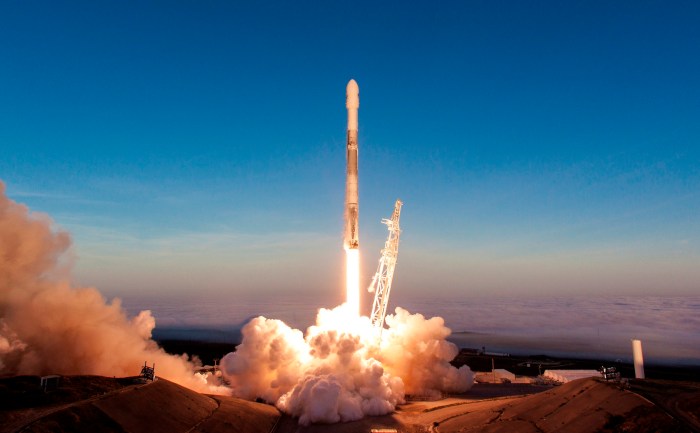Spacexs falcon heavy rocket launches next year – SpaceX’s Falcon Heavy rocket launches next year promise to be a captivating spectacle, pushing the boundaries of space exploration and technological advancement. This powerful rocket, capable of lifting payloads exceeding 63 metric tons into orbit, will be instrumental in launching satellites, deploying scientific instruments, and facilitating ambitious commercial space ventures.
As SpaceX prepares for these upcoming missions, anticipation runs high. The Falcon Heavy’s ability to carry substantial payloads to various destinations, including geosynchronous orbit, the Moon, and even Mars, opens up a world of possibilities for scientific research, commercial applications, and human spaceflight.
Public Interest and Media Coverage: Spacexs Falcon Heavy Rocket Launches Next Year
The Falcon Heavy rocket, with its immense size and capacity, has garnered significant public interest and media coverage. Each launch has been a spectacle, captivating audiences worldwide. The media’s role in amplifying this interest is undeniable, with social media platforms playing a crucial role in disseminating information and generating excitement.
Social Media and Online Platforms
Social media platforms, such as Twitter, Facebook, and Instagram, have become instrumental in generating hype and disseminating information about Falcon Heavy launches. SpaceX itself actively utilizes these platforms to share updates, behind-the-scenes footage, and live streams of launches.
- The use of hashtags, such as #FalconHeavy and #SpaceX, allows for easy tracking and engagement with the launches.
- Live streams on platforms like YouTube and Twitch allow viewers to experience the launches in real-time, fostering a sense of shared excitement and connection.
- Social media platforms also facilitate discussions among space enthusiasts, scientists, and the general public, creating a vibrant online community around Falcon Heavy missions.
Examples of Media Coverage and Public Reactions, Spacexs falcon heavy rocket launches next year
The media coverage surrounding Falcon Heavy launches has been extensive and varied, reflecting the diverse perspectives and interests of the public.
- News outlets, such as CNN, BBC, and The New York Times, have provided in-depth coverage of the launches, highlighting the technical achievements and the potential implications for space exploration.
- Science and technology magazines, such as Nature and Scientific American, have analyzed the scientific and engineering aspects of the launches, offering insights into the innovations and challenges involved.
- Social media platforms have been abuzz with reactions from the public, ranging from awe and excitement to skepticism and concern. Some have praised SpaceX’s accomplishments, while others have raised questions about the environmental impact and the ethical considerations of space exploration.
Last Point
With its impressive capabilities and ambitious mission schedule, SpaceX’s Falcon Heavy rocket is poised to play a pivotal role in shaping the future of space exploration. From launching satellites to supporting commercial space ventures, the Falcon Heavy’s influence will extend far beyond Earth, contributing to scientific breakthroughs, technological advancements, and the expansion of humanity’s reach into the cosmos.
SpaceX’s Falcon Heavy rocket launches next year are anticipated to be even more ambitious, pushing the boundaries of space exploration. While those launches are exciting, there’s another area of innovation making waves: smart stitches that monitor the healing process.
This technology, using sensors to track wound recovery, has the potential to revolutionize healthcare. Just like the Falcon Heavy’s powerful engines propel us towards new frontiers in space, these smart stitches propel us towards a future of advanced wound care.
 Securesion Berita Informatif Terbaru
Securesion Berita Informatif Terbaru
